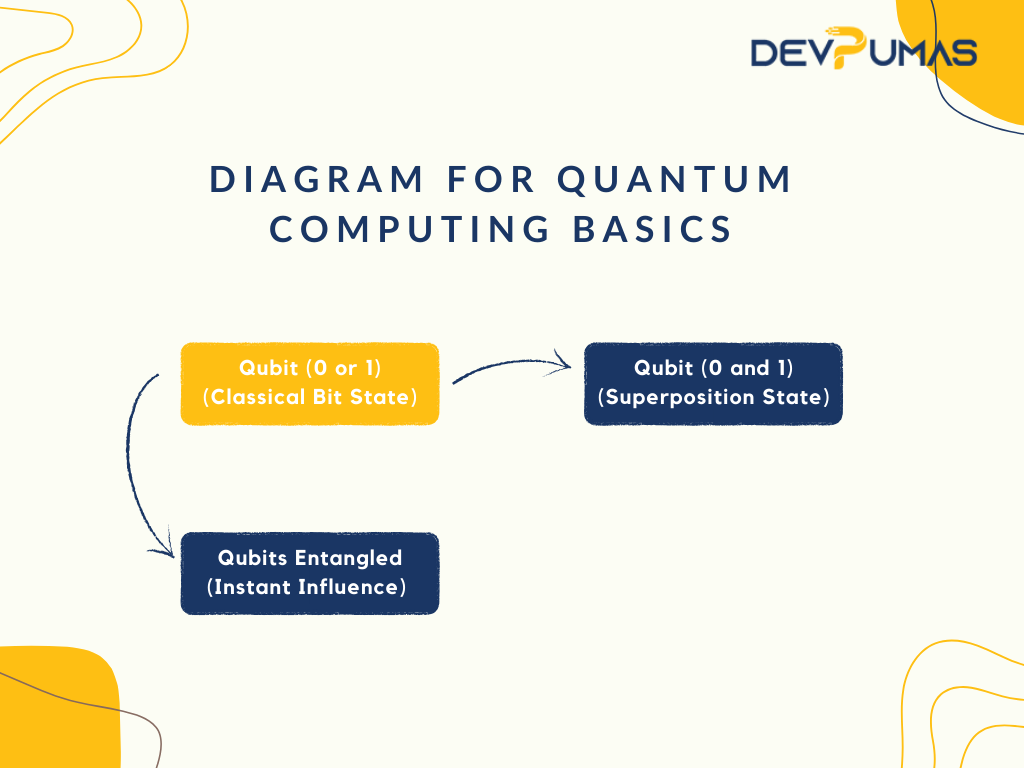Introduction
Quantum computing is no longer just a concept of science fiction; it is quickly becoming a reality that could revolutionize multiple fields, including software development. For developers, understanding quantum computing for developers is increasingly crucial as the technology matures and begins to impact software development practices. Unlike classical computing, which relies on bits that are either 0 or 1, quantum computing uses quantum bits or qubits that can exist in multiple states simultaneously, thanks to the principles of superposition and entanglement. This unique ability gives quantum computers the potential to solve certain problems much faster than traditional computers. As quantum computing continues to rise, developers must acquire new skills and knowledge to stay ahead of the curve.
Understanding the Basics of Quantum Computing
Before diving into the impact of quantum computing on developers, it is essential to understand the foundational concepts that differentiate quantum computing from classical computing.
1. Quantum Bits (Qubits)
Unlike classical bits, which can be either 0 or 1, qubits can exist in multiple states simultaneously due to a phenomenon called superposition. A qubit is not limited to binary states but can represent a combination of both 0 and 1 at the same time. This ability allows quantum computers to process a vast amount of data simultaneously, which is a fundamental difference from classical computing.
2. Superposition and Entanglement
Superposition: This principle allows qubits to be in a combination of states simultaneously. When measured, a qubit will collapse to one of the basis states (0 or 1), but until that point, it can exist in multiple states. This property enables quantum computers to perform many calculations at once.
Entanglement: When two qubits become entangled, the state of one qubit instantly influences the state of another, no matter how far apart they are. This quantum property can be leveraged to perform complex operations at speeds unattainable by classical computers.

Potential Impact of Quantum Computing on Software Development
The advent of quantum computing for developers could significantly alter how software is developed and executed. Here are some ways quantum computing might impact software development:
1. Speed and Efficiency
Quantum computers have the potential to solve certain problems exponentially faster than classical computers. This speed can drastically reduce the time required for computationally intensive tasks, such as optimization problems, complex simulations, and cryptography.
Example Use Case: Quantum computing could revolutionize drug discovery by simulating molecular interactions at unprecedented speeds, allowing researchers to identify potential treatments much faster than with traditional computing methods.
2. New Algorithms and Programming Paradigms
Quantum computing introduces entirely new algorithms and programming paradigms. Developers must learn about quantum algorithms, such as Shor’s algorithm for factoring large numbers or Grover’s algorithm for searching unsorted databases. These algorithms leverage the unique properties of quantum computing, such as superposition and entanglement, to perform tasks more efficiently than classical algorithms.
Example Use Case: In cybersecurity, Shor’s algorithm could theoretically break widely used encryption schemes, such as RSA, which rely on the difficulty of factoring large numbers. As a result, developers must understand quantum-safe encryption methods to protect sensitive data.
3. Quantum Machine Learning
Machine learning is a field where quantum computing could have a significant impact. Quantum machine learning (QML) algorithms could potentially outperform classical machine learning algorithms by processing large datasets more efficiently and identifying patterns that are not easily discernible with classical methods.
Example Use Case: Quantum machine learning could improve natural language processing (NLP) by analyzing vast amounts of text data faster, leading to more accurate language models and better performance in tasks such as translation and sentiment analysis.
Skills Developers Need to Stay Ahead in Quantum Computing
As quantum computing begins to influence software development, developers will need to acquire new skills and adapt to emerging technologies. Here are some essential skills that developers should focus on to stay competitive in the era of quantum computing:
1. Understanding Quantum Mechanics
A solid foundation in quantum mechanics is crucial for developers who want to work with quantum computing. This knowledge will help developers understand the principles behind qubits, superposition, and entanglement, which are fundamental to quantum computing.
Learning Resources: Developers can start with introductory courses on quantum mechanics available on platforms like Coursera, edX, and Khan Academy.
2. Familiarity with Quantum Algorithms
Developers should learn about quantum algorithms and how they differ from classical algorithms. Key algorithms to study include Shor’s algorithm, Grover’s algorithm, and quantum approximate optimization algorithms (QAOA).
Example Study Path: Begin with understanding classical algorithms and their limitations, then explore quantum algorithms that solve the same problems more efficiently.
3. Programming with Quantum Languages
Quantum computing requires different programming languages than classical computing. Developers need to become familiar with quantum programming languages such as Qiskit, Cirq, and Q#. These languages are designed to interact with quantum hardware and simulate quantum circuits.
Example Use Case: A developer could use Qiskit, an open-source quantum computing software development framework, to build and simulate quantum circuits, gaining practical experience with quantum programming.
4. Experimentation with Quantum Simulators
Before working with actual quantum hardware, developers can use quantum simulators to practice writing and testing quantum algorithms. Simulators provide a risk-free environment to experiment and learn without needing access to expensive quantum computers.
Recommended Tools: IBM’s Qiskit provides access to a quantum simulator, as does Microsoft’s Quantum Development Kit, which includes Q# and Azure Quantum.
5. Knowledge of Quantum Cryptography
Quantum cryptography is a field that will become increasingly important as quantum computers gain the ability to break traditional encryption methods. Understanding quantum-safe cryptographic methods, such as lattice-based cryptography and quantum key distribution (QKD), will be crucial for developers working in security-sensitive fields.
Example Use Case: Implementing quantum-safe encryption protocols in banking and finance applications to protect sensitive data from future quantum attacks.
How Developers Can Prepare for the Quantum Future
To prepare for the rise of quantum computing developers, it’s important to stay informed, continuously learn, and get hands-on experience. Here’s a roadmap to get started:
1. Join Quantum Computing Communities
Engage with quantum computing communities to stay updated on the latest developments and network with other professionals in the field. Platforms like GitHub, Stack Overflow, and Reddit have active communities where developers can learn and share knowledge.
2. Participate in Quantum Hackathons and Workshops
Many tech companies and research institutions host quantum computing hackathons and workshops. Participating in these events can provide hands-on experience and exposure to real-world quantum computing challenges.
3. Build Quantum Projects
Develop small projects or contribute to open-source quantum computing projects. Building practical applications will help reinforce theoretical knowledge and provide valuable experience with quantum algorithms and tools.
4. Collaborate with Universities and Research Institutions
Collaborate with universities and research institutions that are at the forefront of quantum computing research. Many institutions offer partnerships and internships that provide access to cutting-edge technology and expertise.
Challenges in Quantum Computing for Developers
While quantum computing presents exciting opportunities, there are also several challenges developers need to be aware of:
1. Limited Access to Quantum Hardware
Quantum computers are currently expensive and not widely accessible. Developers often rely on simulators, which do not fully replicate the capabilities and constraints of real quantum hardware.
2. Steep Learning Curve
Quantum computing involves complex concepts from quantum mechanics, mathematics, and computer science. The steep learning curve can be a barrier for developers new to the field.
3. Rapidly Evolving Field
Quantum computing is a rapidly evolving field, with new algorithms, tools, and hardware being developed continuously. Keeping up with the latest advancements requires ongoing education and adaptation.
The Future of Quantum Computing for Developers
The future of quantum computing for developers is full of potential. As quantum technology advances and becomes more accessible, developers will have opportunities to tackle new challenges and build innovative solutions.
1. Quantum Cloud Services
Quantum cloud services are making quantum computing more accessible by providing remote access to quantum hardware. Companies like IBM, Microsoft, and Google offer cloud-based quantum computing platforms that allow developers to run quantum algorithms without needing their quantum computers.
2. Hybrid Quantum-Classical Systems
Future applications may involve hybrid systems that combine classical and quantum computing. These systems could leverage the strengths of both technologies, using classical computers for tasks they handle well and quantum computers for problems that benefit from quantum speedup.
3. Expanding Industries and Use Cases
As quantum computing becomes more practical, its applications will expand into various industries, including finance, healthcare, logistics, and more. Developers with quantum skills will be in high demand to create solutions that leverage quantum computing’s unique capabilities.
Closure
Quantum computing is poised to revolutionize software development, offering unprecedented speed and efficiency for solving complex problems. Understanding quantum computing for developers is becoming increasingly important as the technology advances and begins to impact various industries. By acquiring knowledge in quantum mechanics, learning new algorithms, and experimenting with quantum tools and simulators, developers can prepare for the rise of quantum computing and stay ahead in this rapidly evolving field.
Whether through participating in quantum communities, attending hackathons, or collaborating with research institutions, developers have numerous opportunities to gain the skills needed to succeed in the quantum era. As quantum computing continues to evolve, those who are prepared will be well-positioned to lead the way in developing innovative solutions that harness the full potential of this groundbreaking technology.



